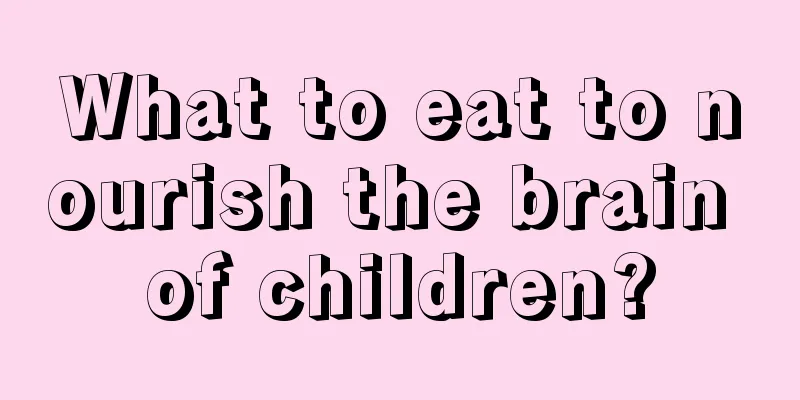What should I do if my 9-month-old baby doesn’t like to eat?

|
When the child is young, we are afraid that he will not drink milk, and we are also afraid that our milk is insufficient, which will affect the child's growth and development. When he is a little older, we know that we need to add complementary foods to the child, because the child's body needs more nutrients. If our milk is insufficient, the child will absorb less nutrients and develop slowly. After adding complementary foods, the child will adapt quickly, but sometimes the child will not like to eat. What should I do if a 9-month-old baby does not like to eat? Babies who used to be able to eat a lot suddenly become less interested in food and have a much smaller appetite; some babies become picky eaters and only eat complementary foods but not milk powder; or only eat milk powder but not complementary foods. Reminder: This is normal at this stage. As long as your baby is healthy, in good spirits, and not losing weight, do not force him to eat the same amount as usual. Countermeasures: Only give the baby 20-30 minutes for each meal, and remove the meal after the time limit; eat complementary food first, and then feed milk. Generally, the amount of milk should not exceed 100 ml. Generally, there are three milk meals and two meals. Drink about 180 ml of milk at around 6:30 in the morning, and have breakfast at around 8 o'clock, which can be egg custard and vegetable puree, bread, or porridge with meat puree or vegetable puree. Fruit around 10 o'clock. Around 12 o'clock, drink about 180 ml of milk. Have fruit or yogurt around 3 o'clock. Around 5 o'clock, noodles with vegetables and minced meat or dumplings, etc. 180 ml of milk around 8pm. Feeding principles: The gastric juice of a 9-month-old baby can fully function to digest protein, so he can eat more protein foods, such as tofu, dairy products, fish, lean minced meat, etc. Please note - new types of complementary foods should be added one by one, and one more should be added after the child gets used to it. If any adverse reaction occurs, stop using immediately. When adding new foods, the baby should eat complementary foods before breastfeeding. In this way, we know what to do if a 9-month-old baby doesn’t like to eat. Parents will be very anxious if the child doesn’t eat well, but don’t just be anxious, you should also think of ways and find the reasons. Everything has a reason. Of course, there are also reasons why the child doesn’t like to eat. The child may not want to eat because he is not feeling well, or the child may not like the food cooked by the parents. Once the reason is found, it will be easy to solve. |
<<: What should I do if my 9-year-old child doesn’t like to eat?
>>: What to do if your 9-month-old baby doesn't want to eat
Recommend
What to do if baby's gastroenteritis does not get better after taking berberine
If a baby has gastroenteritis, he should be treat...
How to treat baby's malnutrition and spleen deficiency
Spleen deficiency is a very common disease. It ca...
The reason why nine-month-old babies sweat when sleeping
When a 9-month-old baby sweats while sleeping, it...
Reasons why children cannot sleep well at night
Sleep is very important to people's health, e...
Why can't children sleep?
Because the nervous system of infants and young c...
Why does my baby drool due to eczema?
Eczema is one of the more common skin diseases in...
Child loses his voice
In our lives, there are many children who may los...
What to do if your one-year-old baby has phimosis
For the growth and development of their babies, m...
What should I do if children have blister-type athlete’s foot?
Nowadays, many children wear bought shoes, especi...
What are the causes of bloating in children?
What are the causes of bloating in children? In l...
How to train your baby to sleep alone?
After the age of two, children can sleep alone, b...
What causes a child's face to turn yellow?
The health status of a baby can be reflected in h...
Baby's stool routine occult blood positive
The baby's physical health is the topic that ...
What to do if children have scalp dermatitis?
You can tell from so many anti-dandruff shampoo a...
What are the dangers of high jaundice in children?
Jaundice in children is a common condition. Newbo...









